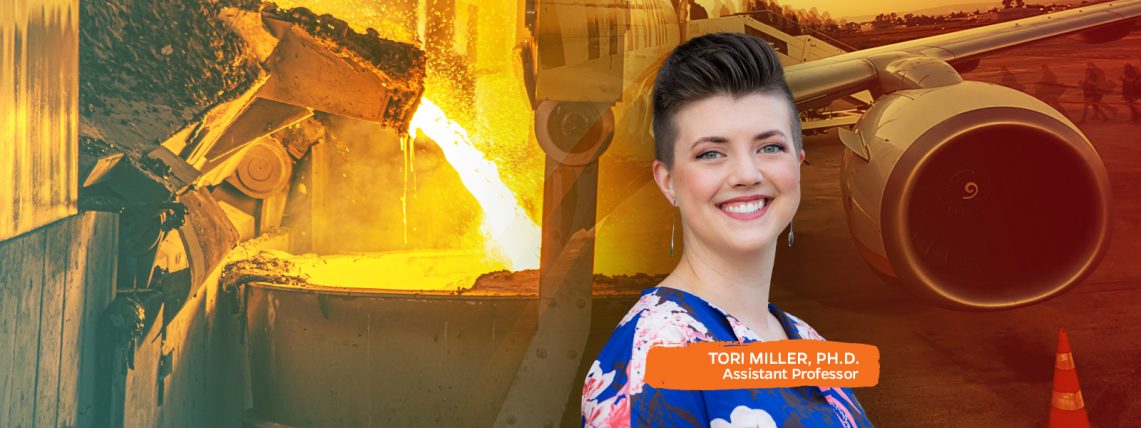Tori Miller, Ph.D., assistant professor in the Department of Materials Science & Engineering at the University of Florida, has been named a National Science Foundation (NSF) Faculty Early Career Development (CAREER) Program Award winner. Her research will utilize statistical methods and machine learning to investigate the micro-scale structure of materials during manufacture.
“When metals are heated and transformed into engineering components by processes such as forging, it is not just a visible, macroscopic shape change happening,” said Dr. Miller. “These manufacturing methods also alter the properties of the metal at the microscale level. By better understanding those changes, we’ll be better equipped to forecast where microstructure changes might occur.”
The ability to predict specific areas for potential microstructure shifts can help prevent material failure while operating in extreme environments, such as aircraft engines or powerplants. Engineers can also use it to help optimize manufacturing. With improved efficiencies, metal processing will require less energy – making it more environmentally friendly and less expensive.
“We already know that manipulating external parameters such as temperature and deformation rates can influence a material’s microstructure, but the relationships between them are incredibly complicated as numerous mechanisms occur simultaneously,” said Dr. Miller. “That’s where the machine learning techniques will come into play for our research team.
Through partnerships with existing UF programs, Dr. Miller will also distribute microstructure simulation kits to middle school teachers around the State of Florida. By targeting school districts with a high fraction of historically underrepresented groups or low socioeconomic status, she hopes to help broaden the diversity of students learning about materials science – especially early in their academic experience.
“The core concept of this research — the measurement and quantification of the micro-scale structure of materials — has been integrated into education and outreach modules for use from middle school to the university level,” Dr. Miller said. “It’s perfect for inspiring young minds to explore a career in a STEM-related field.”
Dr. Miller earned a Ph.D. in Materials from the University of California Santa Barbara in 2016. She was an assistant professor at North Carolina State University before joining UF in 2019 and has previously worked at Ford Motor Company Research and Development, Toyota Engineering and Manufacturing North America, and Lockheed Martin Aeronautics.
In 2020, Dr. Miller was awarded the American Society for Metals (ASM) Bronze Medal for contributions bridging the mechanisms of mesoscale dislocation plasticity with macroscale processing science in a wide variety of alloy systems and for her devotion to the education and training of students.
“I’m excited to be able to present a traditional field like metallurgy as being on the cutting edge of developing new data science methods for research,” said Dr. Miller. “With the balance of research, education and outreach in a CAREER award, I’m also eager to incorporate these methods into the standard undergraduate curriculum as the field becomes even more data-intensive.”
CAREER awards are the NSF’s most prestigious honor for junior faculty, designed to help provide a foundation for a lifetime of scientific leadership and awarded to outstanding early-career scientists who exemplify the teacher-scholar role through research and education, and the integration of the two.

